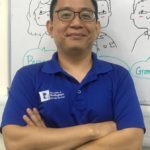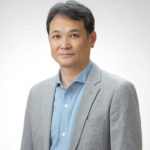Last updated: June 6, 2022
The 61st JACET International Convention (online, 2022)
Dates: August 24th (Wed.) – August 26th (Fri.), 2022
Venue: Online
Theme: Redesigning of Language and Culture Education in the Global Process of Digital Transformation
Abstract:
Triggered by the spread of infectious disease, online university classes are now an option in classroom delivery and no longer a special undertaking. With this development, however, the limitations and problems of face-to-face educational materials, and teaching and evaluation methods, have become clear. Indeed, the penetration of information and communication technology into the field of education has caused not only a change in people’s consciousness but started a movement to restructure existing teaching methods and learning environments. With physical movement restricted, we are also being called upon to examine approaches to internationalization and international exchange. In a world where the ordinary human interactions that occurred at international conferences and while studying abroad have gone online, how is it possible for international exchange and understanding to deepen through computer screens? The world has brought before us such a question to consider. It was in this context that JACET used its 60th Anniversary International Convention to return to the basic principle of applied linguistics, namely cultivating a broad view toward “solving social problems through language,” and to confirm its intent to promote both cultural understanding, and the understanding of language education, including that of English and other languages.
With this background, at the 61st International Convention of the Japan Association of College English Teachers (JACET) to be handled by the Kyushu-Okinawa Chapter, and to be held online in 2022, we would like to continue to tackle the issue of language and culture education by deepening discussions on reorganizations and reforms through a focus on three perspectives – goals, environment, and technology. We do not see these as independent domains, but as fields of concern deeply related to each other. It is not a matter of solving the problem in just one area. The three are a whole and experts in each area must share their wisdom together. For example, consider education for internationalization in a world where study abroad is not possible. What then should the goals of such education be? What kind of environments should be prepared? To achieve better educational results, what sorts of technology ought to be used? Instead of tackling these problems individually, we are expected to consider all constraints and possibilities, and work to find a best solution. In addition, we also recognize that as we look to form new methodologies and value sets, those of us involved in language and culture education cannot avoid discussions about the introduction of advanced information and communication technologies, especially those represented by artificial intelligence. We very much look forward to the active participation in these discussions from many educators and researchers from across the globe.
Inquiries: The JACET International Convention Organizing Committee
TEL: 03-3268-9686
e-mail:
大学英語教育学会(JACET)第61回国際大会(オンライン、2022)
日 程: 2022年8月24日(水)・25日(木)・26日(金)
会 場:オンラインでの開催
テーマ: デジタルトランスフォーメーションのグローバルな進展における言語文化教育の再設計
主 旨:
感染症の拡大を契機として、大学ではオンライン授業が特別なものではなくなり、授業形態の選択肢の一つとなった。その中で、対面型教育の教材や教授法、評価方法の限界や問題点も見えてきた。教育における情報通信技術の浸透は人々の意識を変え、同時にこれまでの教育方法や学習環境を再編し、変革する動きを見せている。その一方で、物理的な移動が制限されるにいたって、国際化や国際交流のあり方についても一度振り返るべき時期にある。国際学会や留学など、当たり前であった人的交流までもオンライン化される状況において、画面越しの国際交流や国際理解を深めていくことは可能なのか。このような問いに向き合うべき時代に我々は置かれている。そこでJACETは、創立60周年記念国際大会を機に、「言語を通じた社会問題の解決」という幅広い視野で問題解決に取り組む応用言語学の理念に立ち返り、英語を含む様々な言語の教育や文化の理解に努める姿勢を打ち出した。
九州・沖縄支部が担当し、オンラインで開催される大学英語教育学会(JACET)第61回国際大会(2022、オンライン)では、このような状況を踏まえ、我々が取り組むべき課題として、言語文化教育の「目標・環境・技術」の三つの観点に着目し、これらの再編・改革について議論を深めたい。「目標・環境・技術」の三点はそれぞれ独立した問題ではなく、相互に深く関係し合っている。どれか一つを改めれば良いというものではなく、一体として、それぞれの専門家が知恵を出し合っていかなければならない。たとえば、海外留学に行くことができなくなった場合の国際化教育を取り上げると、教育の目標はどうあるべきか、どのような環境を整備するべきか、より良い教育を実現するためにどのような技術が活用できるのか、といった問題がある。これらの問題に個別に取り組むのではなく、それぞれの制約と可能性を考慮した上で、最善の解決策を見出していく姿勢が求められている。我々が現在模索している新しい方法論や価値観の形成ならびに人工知能に代表される高度情報通信技術の導入をめぐる議論は言語文化教育に携わる者が避けて通れないがゆえ、世界中の教育・研究者の積極的な参加を期待したい。
問い合わせ先: 大学英語教育学会国際大会組織委員会
TEL: 03-3268-9686
e-mail:
Plenary Lecture
1. Dr. Deborah Healey
Designing culturally-responsive teaching with technology
Abstract: “Technology for teaching” encompasses so much. Word-processors, interactive websites, social media, learning management systems, virtual and augmented reality, artificial intelligence – and more. Teachers are pressed to know their learners, design effective environments for learning, provide formative and summative assessment, encourage learners to create digitally – and meet learning objectives on their curriculum. We want to be sure that our teaching is culturally responsive (Gay, 2002; Collier, 2020), giving all learners options to see people like themselves in material and activities.
With Universal Design for Learning (CAST, 2018; Burgstahler, 2021), teachers, curriculum designers, and technology specialists can be proactive in designing learning environments to meet the needs of all learners. Designing with learners’ cultural, physical, and intellectual differences in mind before the class starts, not just adapting while teaching, is the most effective approach. However, teachers are often not included in curriculum decisions. Nevertheless, we can examine the curriculum that we are given for options to be more inclusive and find ways to plan ahead. Technology tools, chosen thoughtfully, can also help us add culturally responsive universal design elements.
This talk will give examples of ways that teachers can use universal design for learning as a framework and technology as a tool for creating culturally-responsive learning environments. Participants will be asked to reflect on key questions during the talk and post responses in a Padlet to share with others during and after the conference. An annotated resource list will give teachers help in moving forward, using technology effectively in designing learning environments that are welcoming to all.
References
| Burgstahler, S. (2021). Universal design: Process, principles, and applications. https://www.washington.edu/doit/universal-design-process-principles-and-applications |
| CAST (2018). Universal Design for Learning Guidelines version 2.2. https://udlguidelines.cast.org |
| Collier, A. (2020). Inclusive design and design justice. https://er.educause.edu/articles/2020/10/inclusive-design-and-design-justice-strategies-to-shape-our-classes-and-communities |
| Gay, G. (2002). Preparing for culturally responsive teaching. Journal of Teacher Education, 53 (2), p.106-116. |
Dr. Deborah Healey was the 2019-2020 President of the Board of Directors of TESOL International Association. An online and face-to-face teacher and teacher educator, she writes and presents extensively internationally (Africa, Asia, Latin America, Europe, US). Her area of focus is appropriate use of technology in language teaching. Her doctorate is in Computers in Education, and her website is https://www.deborahhealey.com.
2. Prof. Wei Keong Too (University of Nottingham Malaysia)
Reorganising Priorities for TESOL Teacher Education in the Post-COVID Era – Goals, Environment and Technology
Abstract: Countries around the world have transitioned into the COVID-19 endemic stage in recent months. All levels of educational institutions, ranging from pre-school till tertiary level, have resumed physical classes with different models. Although teachers and students are back in schools or universities, the teaching and learning environment is no longer the same in view of the changes that were incorporated to address teaching and learning during the COVID pandemic. One challenge that all institutions face now is prioritising policies and measures to ensure resilience in the education system in the event of any future disruption. In this presentation, I will examine strategies adopted by TESOL teacher education institutions in Malaysia on reorganising priorities in the initial teacher training programme. I will discuss the reorganisation and possible reforms through three lens – Goals, environment, and technology – in relation to curriculum changes, pre-service teachers’ learning and teaching practice. Implications on strategies adopted by the TESOL teacher education institutions will be drawn to help develop a sustainable teacher education model for multicultural, multilingual and geographically diverse contexts.
Wei Keong TOO PhD is Associate Professor in TESOL and the Director of Postgraduate Certificate in Higher Education (PGCHE) in School of Education, University of Nottingham Malaysia. He is a Senior Fellow of Higher Education Academy (HEA) and a recipient of Lord Dearing Award 2021 for teaching and learning. He works with pre-service, in-service school teachers and university teachers on various issues of teaching and learning. His research interests are teacher professional development (across all educational levels), higher education pedagogy, education policy and teaching literature in English.
3. Prof. Hiroaki Ogata (Kyoto University)
Towards data and evidence-informed teaching and learning in the context of language learning
Abstract: We all experienced and witnessed some big changes in education during Covid-19 since January 2020. This talk will summarize what we learned from the emergency remote teaching during Covid-19 and what we should take out from our experiences for the next new normal in a post Covid-19 Era. In Particular, I will explain how it is very important to capture and analyze the teaching and learning process data, and to find the evidence in the context of language learning. Also, it is crucial to foster the self-direction skills of students by using their own learning data for the next new normal era. In this talk, I will talk about Learning and Evidence Analytics Framework (LEAF). The platform links educational data from multiple sources such as LMS, e-book readers and wearable devices to provide an educational big data and design various AI-driven services for the end-users (students and teachers). This talk shall also demonstrate this data-driven infrastructure and the learning analytics research that this framework enables. Current large-scale implementation of the system spans across multiple institutions, including public schools at a compulsory education level and universities in Japan. We will share our research findings, learnings and challenges faced from the past 4 years of the project and also highlight the advantage of LEAF during this emergency remote teaching period of the pandemic.
Hiroaki Ogata is a Professor at the Academic Center for Computing and Media Studies, and the Graduate School of Informatics, Kyoto University, Japan. His current research focuses on Educational Data Science and Learning Analytics. He has published more than 500 peer-reviewed papers including SSCI Journals, and international conferences. He received several Best Paper Awards and gave keynote lectures in several countries. He is an editorial board member of IEEE TLT, IJCSCL, IJAIED, JLA, RPTEL, SLE, etc.





